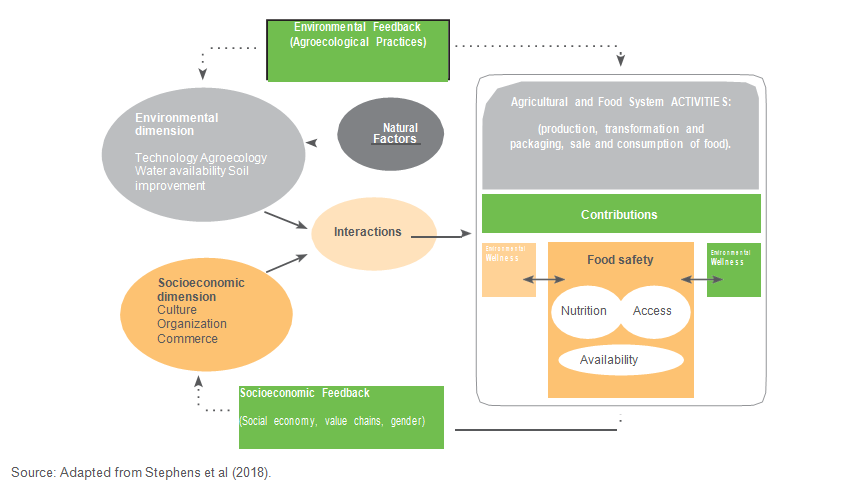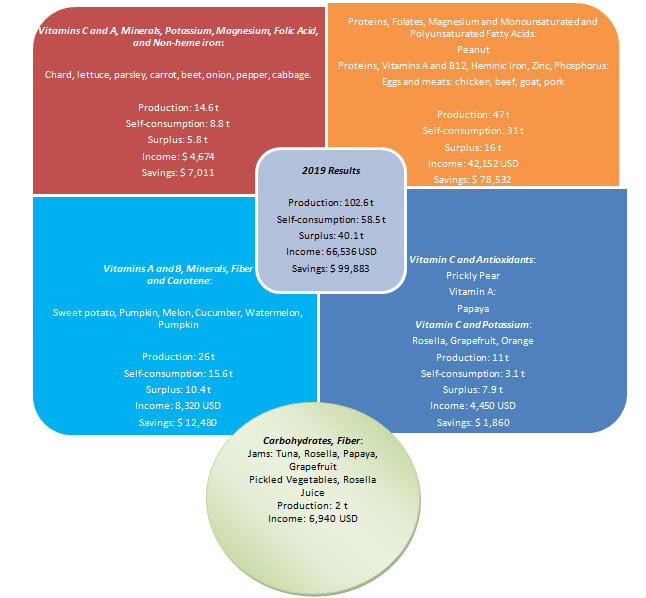A social approach to product diversification and community organization
A community of 65 poor and food insecure smallholder families in the Argentine Chaco joins an organization network to build social, economic and nutritional strength.
Context of the story
Much of the population of the province of Chaco, Argentina, has historically had little access to nutritious food or services. As a result, chronic malnutrition has prevailed, especially among children.
In the southwest of the province, a subtropical and semi-arid region, peri-urban smallholders formerly employed in the cotton harvest settled in farms of about 10 hectares, the majority located in municipal public lands.
These large families subsisted on odd jobs and lived in precarious housing without access to safe water. More than half lacked food gardens or livestock fences.
A community is mobilized to fight food insecurity
The implemented initiative
Together with a team of national and international organizations, INTA Las Breñas promoted nutrient-dense, environment-adapted crops as well as changes in eating habits to improve the diet of local families.
The project included the construction of cisterns and the recycling of gray waters for irrigation to improve water management.
The application of value chains and farmer-to-farmer training methods enabled technological, organizational and commercial innovations.
Transforming a community through diversification, training and empowerment
The technological solution
A wide array of solutions included:
Fostering the use of agroecological methods to develop food gardens and farms.
Selecting cultivars for their adaptation to the environment, nutritional value and productivity.
Promoting seeds and traditional crops from the area.
Introducing leaf vegetables rich in vitamins and minerals in the family diet.
Delivering seeds, together with training in companion planting, crop rotation, fertilizer production and water management.
Installing perimeter fences to encourage livestock breeding.
Providing producers with water wells as well as machinery and equipment for collective use.
Training beneficiaries in the production of preserves and juices to make optimal use of surplus production and perishable food.
Including in training programs best practices for processing and preserving fruits and vegetables without the use of chemicals; and hazard analysis and critical control points, among other topics.
"Now, we produce a little bit of everything ... We have learned to eat well, in a healthy way."
Participating countries
Results
INTA promoted the introduction of the prickly pear, of high nutritional value and suitable for local drought conditions.
Families switched from a diet based on carbohydrates and fats to a varied and healthy diet.
The project directly benefited 325 people. In addition, it provided training to 3,000 people and sold surpluses to 7,000 consumers.
The smallholder families became eligible for microcredit for equipping and improving their operations.
The project enabled the creation of an association of women entrepreneurs, who became trained professionals and gained access to public resources.
The area sown and the production of vegetables increased significantly. Fruit trees, very scarce at the beginning of the initiative, today provide 11 tons of fresh products.
Relevant data
Agriculture, food security and environment

Nutrients under scrutiny
Foods produced, grouped by main nutrients (2019)

Participating Organizations
Project Information










 Argentina
Argentina